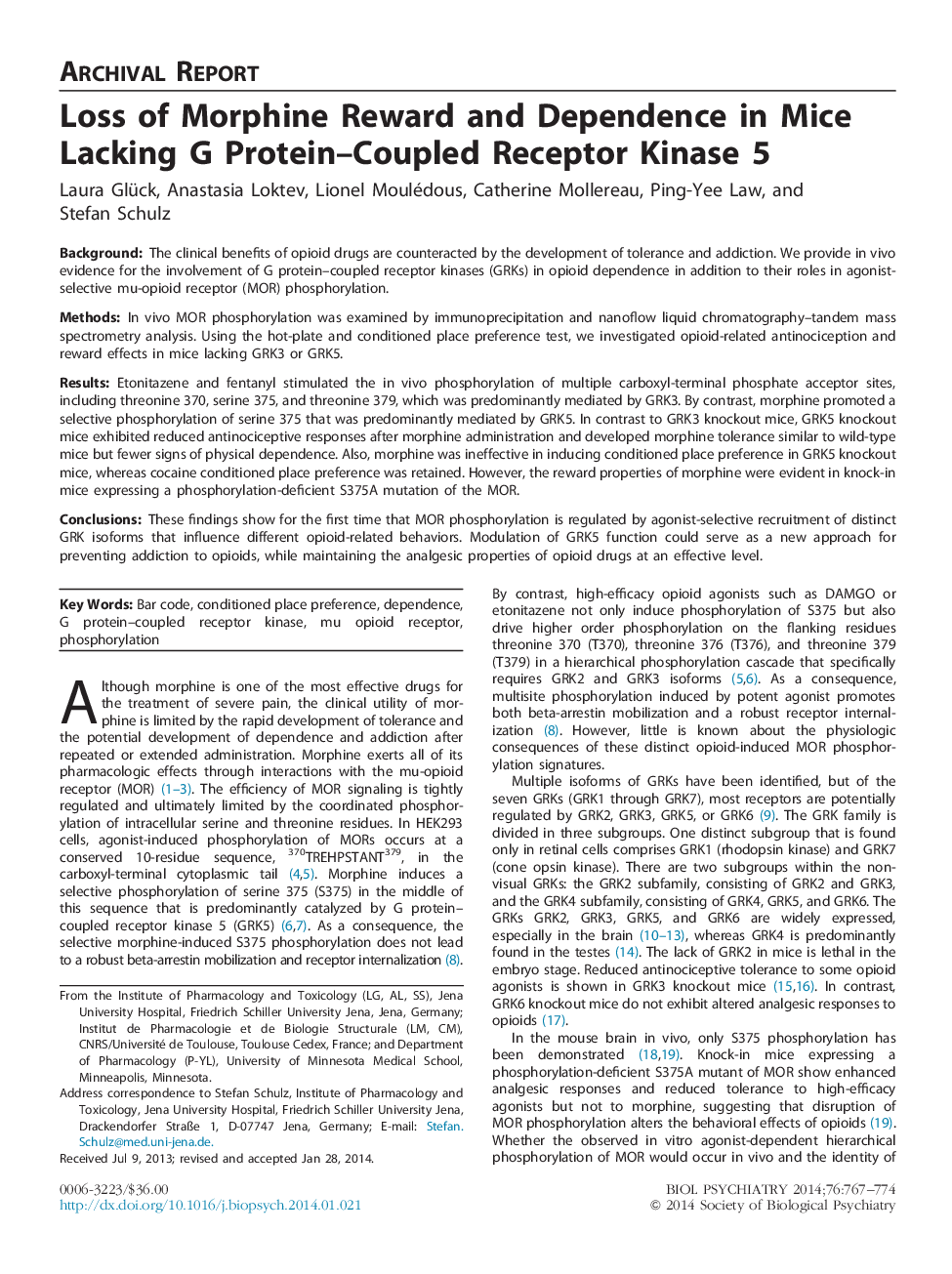| کد مقاله | کد نشریه | سال انتشار | مقاله انگلیسی | نسخه تمام متن |
|---|---|---|---|---|
| 4177343 | 1276416 | 2014 | 8 صفحه PDF | دانلود رایگان |

BackgroundThe clinical benefits of opioid drugs are counteracted by the development of tolerance and addiction. We provide in vivo evidence for the involvement of G protein–coupled receptor kinases (GRKs) in opioid dependence in addition to their roles in agonist-selective mu-opioid receptor (MOR) phosphorylation.MethodsIn vivo MOR phosphorylation was examined by immunoprecipitation and nanoflow liquid chromatography–tandem mass spectrometry analysis. Using the hot-plate and conditioned place preference test, we investigated opioid-related antinociception and reward effects in mice lacking GRK3 or GRK5.ResultsEtonitazene and fentanyl stimulated the in vivo phosphorylation of multiple carboxyl-terminal phosphate acceptor sites, including threonine 370, serine 375, and threonine 379, which was predominantly mediated by GRK3. By contrast, morphine promoted a selective phosphorylation of serine 375 that was predominantly mediated by GRK5. In contrast to GRK3 knockout mice, GRK5 knockout mice exhibited reduced antinociceptive responses after morphine administration and developed morphine tolerance similar to wild-type mice but fewer signs of physical dependence. Also, morphine was ineffective in inducing conditioned place preference in GRK5 knockout mice, whereas cocaine conditioned place preference was retained. However, the reward properties of morphine were evident in knock-in mice expressing a phosphorylation-deficient S375A mutation of the MOR.ConclusionsThese findings show for the first time that MOR phosphorylation is regulated by agonist-selective recruitment of distinct GRK isoforms that influence different opioid-related behaviors. Modulation of GRK5 function could serve as a new approach for preventing addiction to opioids, while maintaining the analgesic properties of opioid drugs at an effective level.
Journal: Biological Psychiatry - Volume 76, Issue 10, 15 November 2014, Pages 767–774